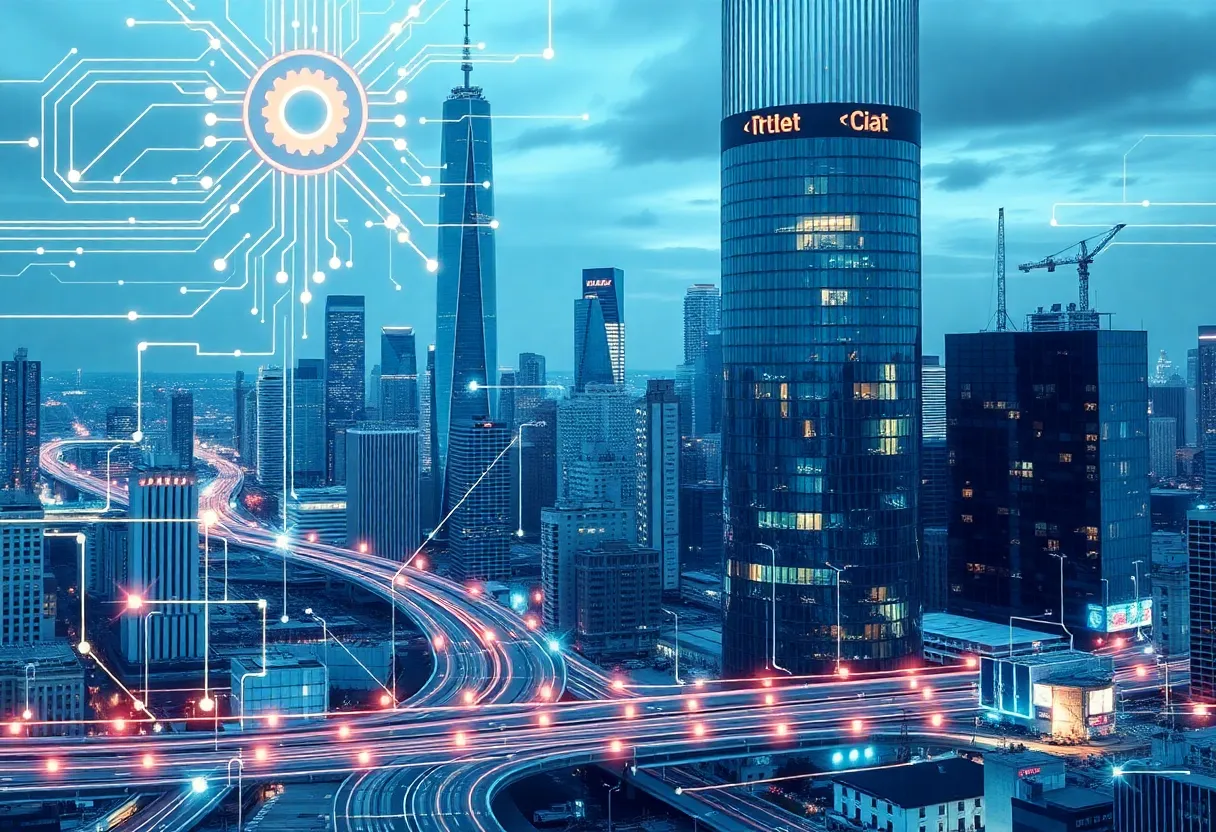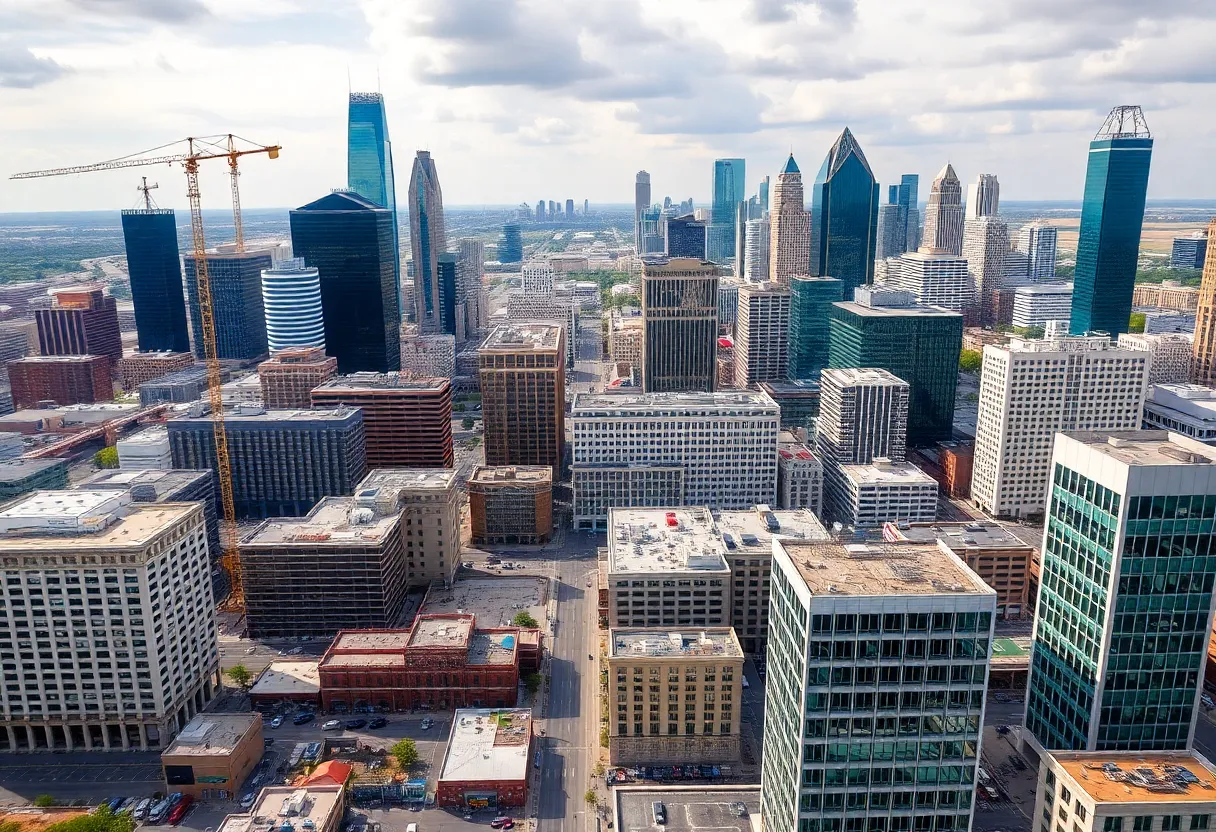News Summary
The Austin City Council is advancing a resolution to strengthen oversight of artificial intelligence (AI) systems in city operations. This new framework aims to promote workforce protections, ensure transparency, and assess the environmental impact of AI infrastructures. Key aspects include mandates for human oversight and advance notifications for city employees about AI’s impact on job performance. Additionally, the resolution will collaborate on a regional environmental study to gauge data center growth and its effects on utilities. Mayor Pro Tem Vanessa Fuentes champions responsible AI integration while safeguarding civil rights.
Austin is taking significant steps to enhance its oversight of artificial intelligence (AI), as the City Council prepares to consider a new resolution aimed at promoting workforce protections, ensuring public transparency, and assessing the environmental impact of AI-related infrastructure.
What Happened
The Austin City Council is set to review a comprehensive resolution that expands the existing AI oversight framework established in February 2024. This upcoming resolution seeks to introduce specific mandates for human oversight concerning AI decisions that significantly influence city employees and operations. It emphasizes that certain uses of AI are acceptable while outlining rigorous requirements for audits to maintain accountability.
Who Is Affected
The resolution primarily targets city employees, making it imperative for the council to maintain transparency and communication regarding any AI systems utilized in evaluating job performance, wages, or working conditions. City staff will receive advance notification about AI systems that might impact their roles, and an appeals process featuring human review will be implemented. The initiative aims to ensure that city staff remain informed and involved amid the evolving landscape of AI utilization in governmental operations.
Official Response
Promotion of this resolution has come from Mayor Pro Tem Vanessa Fuentes, who is committed to managing AI’s incorporation into city functions responsibly. The resolution will also implement a “no displacement without consultation” policy, which mandates prior discussions with unions before deploying AI technologies that could impact city jobs. Furthermore, the proposal prohibits the city’s use of AI for real-time employee surveillance, biometric data collection, and any automated decision-making related to policing or personnel matters.
Environmental Impact
A crucial component of the resolution involves conducting a regional environmental study to understand the implications of data center growth over the next decade. This study, to be carried out by the City Manager in partnership with Austin Energy and Austin Water, will evaluate the energy and water demands of data centers and their potential effects on utility rates and resource availability. The resolution introduces reporting requirements to analyze how these data centers influence Austin’s long-term infrastructure capacity.
Current Situation and Challenges
Austin has witnessed a rapid surge in data center construction, with numbers quadrupling in the first half of 2024 compared to the previous year. The Austin data center market is projected to grow by 7% annually through 2031, driven largely by the increasing requirements of AI technology. This spike in demand has raised concerns regarding the adequacy of the existing energy infrastructure in Central Texas. For instance, some data centers are reported to need power comparable to that of a city with 100,000 homes.
According to the Electric Reliability Council of Texas (ERCOT), it is anticipated that there will be a need to expand grid capacity from 85,000 megawatts (MW) to 150,000 MW within the next six years to keep pace with expanding demand. The recent infrastructure summit further highlighted that the current infrastructure might not be ready for the projected growth associated with AI and other data-heavy industries.
What’s Next
As part of the resolution, a public awareness campaign and a community engagement effort will be initiated to provide accessible information regarding AI deployment. This initiative will be governed by the AI Advisory Committee, in collaboration with the city’s Technology Commission. An initial report addressing AI training, auditing, and infrastructure planning is anticipated by October 2025, followed by annual reports detailing impacts on city workers and operations.
The Austin City Council’s proactive approach to AI regulation reflects its commitment to balancing innovation with necessary safeguards for civil rights, public resources, and the integrity of government services. As the city moves forward, the focus remains on integrating AI responsibly while simultaneously monitoring its implications for both the workforce and the environment.
Deeper Dive: News & Info About This Topic
HERE Resources
Austin’s Micromobility Program Update: Successes and Challenges
University Presidents Unite Against Federal Funding Threats
Texas Central High-Speed Rail Project Faces Funding Challenges
Rep. Byron Donalds Faces Chaotic Backlash at Town Hall
Texas Senate Passes Controversial Bill Impacting University Curricula
Austin ISD Faces Controversy Over Principal and Teacher Termination
ACC Hosts Special Book Reading for Military Children
Judge Demands Clarity on Wrongfully Deported Man from Maryland
Trump Administration Confronts Columbia University Over Antisemitism
Trump’s Tariff Policy Causes Economic Unrest
Additional Resources
- Austin Monitor
- Wikipedia: Artificial Intelligence
- KXAN
- Google Search: Texas Responsible AI Governance Act
- Orrick
- Google Scholar: AI Governance
- Statesman
- Encyclopedia Britannica: AI policy
- PRWeb
- Google News: AI and Healthcare








